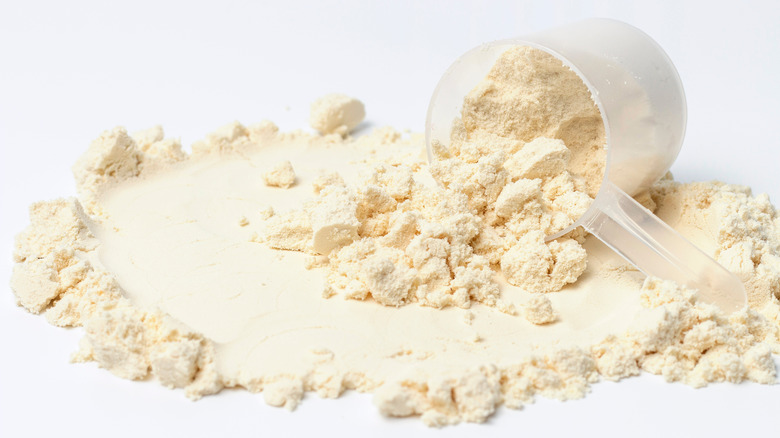Is Soy Protein Bad For You?
Soy protein, a vegan alternative to whey protein and casein, seems like a perfect fit for plant-based diets, but is it really that healthy? The answer depends on who you ask. Just like milk, beef, eggs, and other protein sources, soy promotes muscle growth and repair. Since it provides all 9 essential amino acids, it can be considered a complete protein, according to the standards of the International Society of Sports Nutrition. However, it appears to be inferior to whey and milk protein. The latter boast higher amounts of branched-chain amino acids (BCAAs), leading to better results in terms of fat loss and muscle growth. Additionally, soy contains plant-based compounds with estrogen-like effects, which may inhibit muscle protein synthesis.
Tempeh, tofu, edamame, and other soy foods have their place in a balanced diet. They are rich in protein, iron, zinc, omega-3s, fiber, calcium, and vitamin D and contain no cholesterol. Plus, they're significantly lower in saturated fat than meat and dairy. Soy protein powder is made from soybeans, but its safety and nutritional value are subject to debate.
Potential benefits and risks of soy protein
The controversy behind soy foods is related to their high content of phytoestrogens, or isoflavones. These compounds mimic estrogen in the body and may have adverse effects, such as fatigue, constipation, thyroid problems, and weight gain. Some studies, however, suggest that isoflavones may protect against cancer and heart disease while improving metabolic health.
Soy isoflavones can benefit athletes, too. In a 2009 study published in the Journal of Medicinal Food, long-distance runners who took a supplement containing lycopene — an antioxidant related to beta carotene — and isoflavones experienced lower levels of oxidative damage after exercise. Strenuous workouts, including aerobic training, increase oxidative stress, which is a risk factor for neurodegenerative disorders. Therefore, a diet rich in phytoestrogens may increase your antioxidant defenses. However, the research is mixed — for every study that supports the potential benefits of soy protein, there's another study that says the opposite.
Last but not least, soy protein powder may contain heavy metals, chemicals, and genetically modified ingredients with inflammatory effects, registered dietician and nutritionist Jonathan Valdez explained to Eat This, Not That! Based on these aspects, Valdez recommends avoiding soy protein if you have a sensitive stomach or inflammatory disorders. Your best bet is to consume a variety of high-protein foods and do your due diligence when shopping for soy protein supplements. If you prefer to stay on the safe side, consider using pea, hemp, or brown rice protein powder rather than soy.


